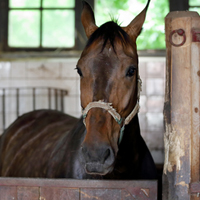
Keeping Abreast of the Hooters Class Action in California

. By Gordon Gibb
San Francisco, CAA series of class action lawsuits are readying for presentation in the courts on behalf of employees of the infamous Hooters restaurants in California. The class actions claim numerous violations of overtime and other labor laws in a state famous for protecting workers' rights with stringent wage and hour provisions.
Some states do not require that employers pay for employee uniforms—an obvious prerequisite for employment at Hooters. In California, however, if an employer requires that an employee wear a specific uniform for the job, the employer is required to foot the bill. That allegedly didn't happen for Dina Partridge of Pleasanton, the lead plaintiff in a class action lawsuit against a Hooters franchise alleging mistreatment.
According to the 4/11/10 issue of the New York Times, Partridge was made to work long hours without breaks and did not get her share of tips. She also was allegedly required to spend her own money to acquire the mandated uniform, which included the low-cut Hooters tank top, short shorts, "Cal-Sun" footless pantyhose, white slouchy socks and high-top Sketchers sneakers.
Partridge was a single mother of a toddler in 2004 when she was hired as a so-called Hooter Girl, one of 80 hires from a field of about 1200 applicants. Partridge felt lucky to be selected and to have a job—but as a single mother, she could ill afford to buy her own uniform.
A spokesperson for the defendant claims that two uniforms are purchased for each new hire. Additional uniforms, for matters of convenience or change in weight, are the responsibility of the employee.
The uniform issue is a common complaint in similar lawsuits launched against Hooters throughout the state. Other allegations common to the lawsuits involve the failure to provide an adequate share of tips, legally mandated breaks for rest and meals or sufficient compensation for special events.
The three class action lawsuits will potentially involve all 6,000 Hooters food servers, dishwashers and busboys in California.
''California is the most stringent and most expansive when it comes to pro-employee laws,'' said William Gould IV, a law professor at Stanford University and the former chairman of the National Labor Relations Board, in comments published in the New York Times.
In 1997 Hooters of America paid $3.75 million to settle a class action lawsuit filed by men who had been denied jobs.
San Francisco, CAA series of class action lawsuits are readying for presentation in the courts on behalf of employees of the infamous Hooters restaurants in California. The class actions claim numerous violations of overtime and other labor laws in a state famous for protecting workers' rights with stringent wage and hour provisions.
Some states do not require that employers pay for employee uniforms—an obvious prerequisite for employment at Hooters. In California, however, if an employer requires that an employee wear a specific uniform for the job, the employer is required to foot the bill. That allegedly didn't happen for Dina Partridge of Pleasanton, the lead plaintiff in a class action lawsuit against a Hooters franchise alleging mistreatment.
According to the 4/11/10 issue of the New York Times, Partridge was made to work long hours without breaks and did not get her share of tips. She also was allegedly required to spend her own money to acquire the mandated uniform, which included the low-cut Hooters tank top, short shorts, "Cal-Sun" footless pantyhose, white slouchy socks and high-top Sketchers sneakers.
Partridge was a single mother of a toddler in 2004 when she was hired as a so-called Hooter Girl, one of 80 hires from a field of about 1200 applicants. Partridge felt lucky to be selected and to have a job—but as a single mother, she could ill afford to buy her own uniform.
A spokesperson for the defendant claims that two uniforms are purchased for each new hire. Additional uniforms, for matters of convenience or change in weight, are the responsibility of the employee.
The uniform issue is a common complaint in similar lawsuits launched against Hooters throughout the state. Other allegations common to the lawsuits involve the failure to provide an adequate share of tips, legally mandated breaks for rest and meals or sufficient compensation for special events.
The three class action lawsuits will potentially involve all 6,000 Hooters food servers, dishwashers and busboys in California.
''California is the most stringent and most expansive when it comes to pro-employee laws,'' said William Gould IV, a law professor at Stanford University and the former chairman of the National Labor Relations Board, in comments published in the New York Times.
In 1997 Hooters of America paid $3.75 million to settle a class action lawsuit filed by men who had been denied jobs.
California Overtime Legal Help
If you have suffered losses in this case, please send your complaint to a lawyer who will review your possible [California Overtime Lawsuit] at no cost or obligation.
READ MORE CALIFORNIA OVERTIME LEGAL NEWS



